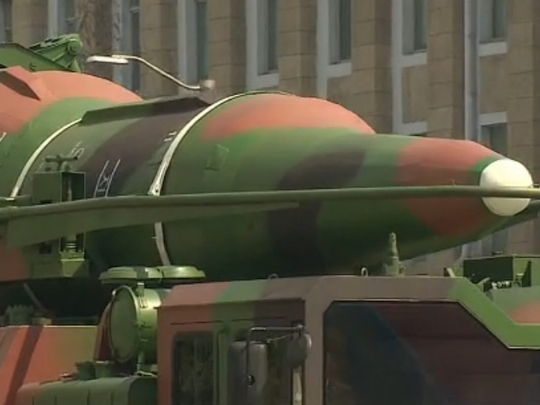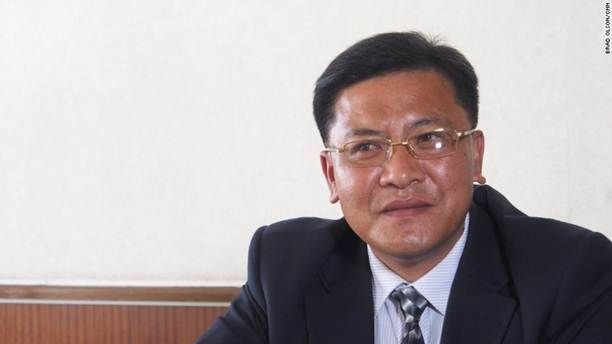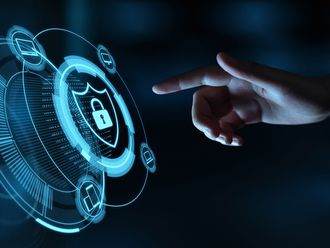
Pyongyang, North Korea: When officials informed us that we'd be granted a sit-down interview with a high-ranking member of North Korea's inner circle with no preconditions, it was a real surprise.
Senior figures in Pyongyang don't do interviews, especially not with the international press.
"I do not like talking to foreign media," Park Yong Chol said frankly as we shook hands ahead of our meeting. He said that we report rumor and fabrication about his country.
Park is the deputy director of the DPRK Institute for Research into National Reunification -- a think tank with links to the highest levels of North Korea's government.
In spite of his misgivings, he sat down to talk with us beneath the ubiquitous portraits of late North Korean leaders Kim Il Sung and Kim Jong Il. Our conversation lasted nearly two hours and no topic was off limits.
The only instruction we were given was to break from our traditional CNN interview format of two chairs facing each other, so that we could sit across a large conference table, and so that the two portraits of Kim Il Sung and Kim Jong Il could be seen directly over Park.
We agreed to do this, as our government guides explained the symbolism of the Great Leaders appearing overhead was very important to their country.
We quickly got onto a touchy subject: the recent reports from South Korea's National Intelligence Agency that Kim Jong Un had personally ordered the execution of about 15 officials so far this year.
"Malicious slander!" he replied. "Especially as they try to link the allegations against to the august name of our Supreme Leader Marshall Kim Jong Un."
But he did not deny that executions take place here of those who try to overthrow the government or subvert the system. "It is very normal for any country to go after hostile elements and punish them and execute them."
Rights abuses
And even though a recent United Nations report has alleged large-scale human rights abuses -- murder, starvation and torture of inmates in a network of brutal prison camps -- Park denied that such camps exist. He said although there were correction reform centers for ordinary criminals, political prison camps simply did not exist. "Our society is a society without political strife or factions or political divisions -- as a result we don't have the term 'political prisoner,'" he added.
According to Park, these allegations come from defectors who are enticed or forced into defecting by the U.S. and South Korea. "Some of the so-called defectors are criminals who ran away from their homes. They committed crimes against the state here. Because of that they ran away.
"And now they are in South Korea denouncing our government because they have no other choice."
In his view, there is no single yardstick for human rights applicable to every country.
"If you talk about human rights in my country, I will talk about human rights in the United States," he said. "You have racial riots taking place in the wake of the killing of so many black people by the police. You have prisons full of inmates and new techniques of torture being used.
"The U.S. President and other high-ranking administration officials have acknowledged really severe forms of punishment on inmates in detention. If you talk about human rights in the DPRK, we will talk about human rights in the U.S."
Nuclear option
In spite of all the sanctions, the DPRK sees no option but to pursue its nuclear weapons program. Park maintained that his country does indeed have the missile capability to strike mainland United States and would do so if the U.S. "forced their hand."
It has been a costly strategy, but a necessary one, he admitted. "We invested a lot of money in our nuclear defense to counter the U.S. threat -- huge sums that could have been spent in other sectors to improve our national economy. But this strategic decision was the right one."
The next goal is economic.
"We're a major power politically, ideologically and militarily," he said. "The last remaining objective is to make the DPRK a strong economic power."
But to do that North Korea would have to improve ties with the international community.
With mutual distrust and Pyongyang's refusal to disarm its nuclear arsenal, there seems to be no clear path to moving forward.













